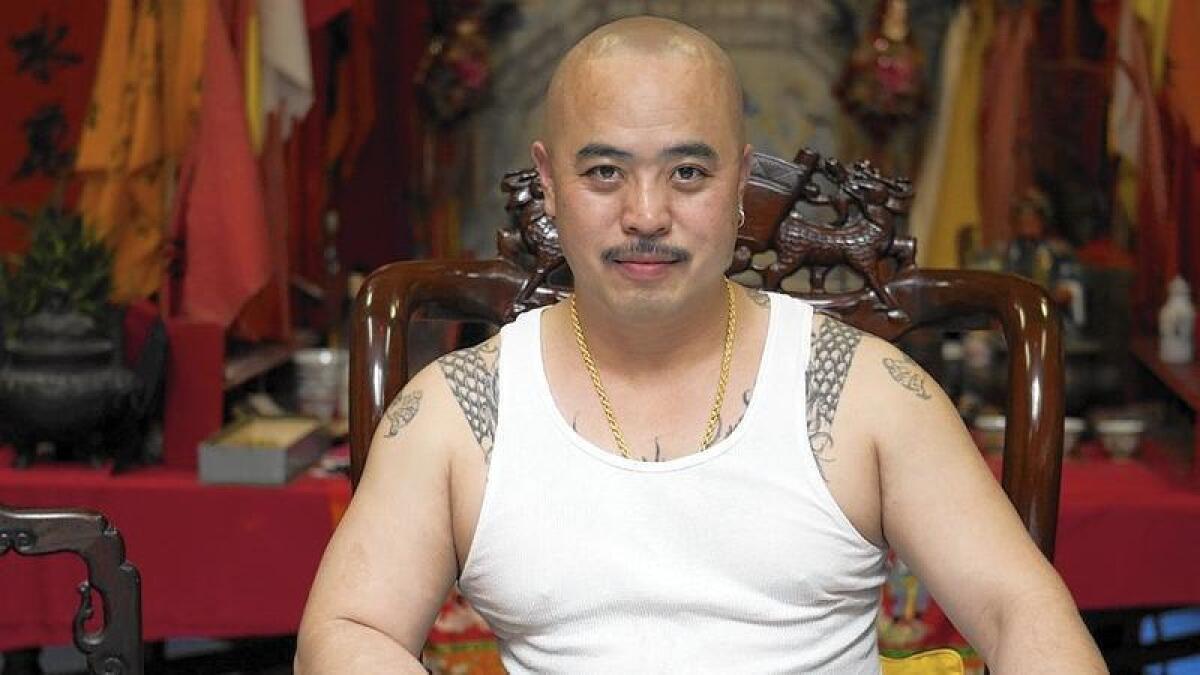Attorney for ‘Shrimp Boy’ says conviction would send innocent man to prison

- Share via
Reporting From San Francisco — An attorney for a man charged with murder and racketeering in a Chinatown organized crime case told jurors Monday that a conviction would send an innocent man to prison.
J. Tony Serra, lead attorney for Raymond “Shrimp Boy” Chow, is expected to continue his closing argument in the two-month trial Tuesday.
Prosecutors have said that Chow took over a fraternal group with criminal ties after having its previous leader killed and ran an enterprise that engaged in drug trafficking, money laundering and the sale of stolen cigarettes and alcohol. He is also accused in a second killing.
On Monday, Serra derided the prosecution’s evidence as flimsy, based on secret recordings and shady testimony from Chow’s former colleagues. He railed at the government’s use of secret surveillance.
“If you convict this man on the nature and quality of the evidence that has been produced, you will be convicting an innocent person,” Serra said. “This is a case that is fraught, fraught with reasonable doubt.”
Much of Monday’s session in the courtroom of U.S. District Judge Charles Breyer was consumed by the prosecution’s closing argument. Assistant U.S. Atty. Susan Badger asked jurors to disregard claims that Chow was a changed man, saying that deception was his true nature.
“He is not the victim here,” Badger said. “He is not the world’s most misunderstood criminal.”
She pointed to an evidence table displaying about a dozen firearms seized from the homes of Chow’s alleged partners in crime.
Chow, 56, sat at a table flanked by four of his attorneys. He looked on stoically for the most part, aided by an interpreter. At one point, he cheerily waved to a person in the audience.
The multiyear investigation was spearheaded by an undercover FBI agent who testified that he spent hours at fancy restaurants and nightclubs with Chow and people connected to him, recording many of their conversations.
The agent, who testified under a pseudonym, said Chow tried to distance himself from any criminal activity during the investigation but repeatedly accepted money after introducing the agent to money launderers.
The investigation led to the indictment of more than two dozen people in 2014 and the subsequent racketeering conviction of state Sen. Leland Yee.
Chow testified to dealing drugs and getting involved in a street gang but said he decided to renounce criminal activity after engaging in meditation.
He denied involvement in the slayings and said the agent gave him the money because the agent was looking out for him, not in exchange for criminal activity.
The case is expected to go to the jury Tuesday.
More to Read
Sign up for Essential California
The most important California stories and recommendations in your inbox every morning.
You may occasionally receive promotional content from the Los Angeles Times.










